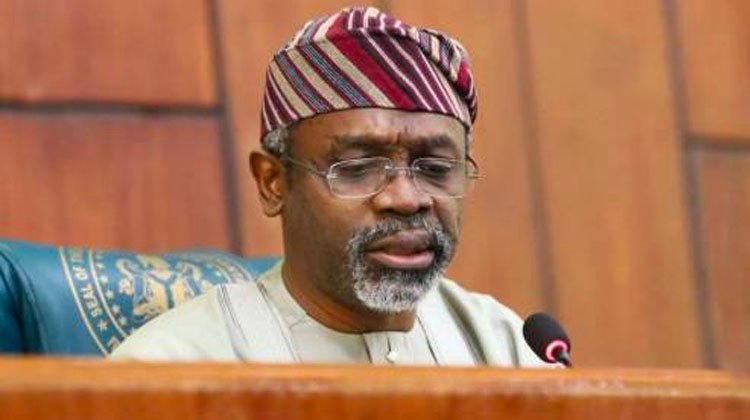
The Speaker of the House of Representatives, Femi Gbajabiamila, has called for a meeting with leaders of women groups that laid siege to the main gate of the National Assembly Complex since the lawmakers voted against gender related bills in the ongoing amendments to the 1999 Constitution.
Gbajabiamila had earlier, on Tuesday, drafted the Majority Leader, Alhassan Ado-Doguwa, accompanied by the Deputy Majority Whip, Nkeiruka Onyejeocha, to address the protesters who had insisted on talking to the leadership of the National Assembly before leaving the gate.
Reporting back to the House at the plenary on Wednesday, Ado-Doguwa partly said, “Mr Speaker, they have communicated to your office and that of the Senate President (Ahmad Lawan), that they want us to address the three clauses of the Electoral Act.
“One is indigeneship, the second is about citizenship, and the third is women participation in administration of party politics.
“So, I went to interface with these women and convinced them to vacate the streets of the National Assembly to allow members to exercise their lawful duties. Their outcries can only be addressed if they allow members to discharge their duties.
“We gave them a commitment that we will revert to them and make sure we do something about their outcries within seven legislative days, which is about two weeks.”
Gbajabiamila, however, noted that the timeframe would depend on when the House Special Ad-Hoc Committee on the Review of the 1999 Constitution, chaired by the Deputy Speaker, Ahmed Wase, would lay a report on the second batch of amendment bills.
The PUNCH had reported that the three bills, which failed to pass among the first batch of bills, had been re-presented to the committee.
Gbajabiamila said, “We don’t want to take this in isolation; we will take it together with other reports.
“We might be going on Ramadan break soon but Honourable Nkeiruka Onyejeocha, please arrange a meeting with the representatives of the women with me in the office next week.”
The House had on March 8, 2022, reversed itself on three of the five gender related bills that failed to pass in the ongoing amendments to the 1999 Constitution.
Speaker of the House, Femi Gbajabiamila, had noted that the three bills would be included in the second batch of amendment bills to be considered, saying the House would “relist them on the next set of amendments coming up, I believe, within the next four weeks. They will come again to vote.”
Those revisited are Bills 36, 37 and 38.
Bill 36 seeks to “expand the scope of citizenship by registration” by allowing a foreigner – male or female – who marries a Nigerian to become a Nigerian citizen.
Bill 37 seeks to “provide for affirmative action (35 per cent of leadership slots) for women in political party administration.”
Bill 38 is to “provide criteria for qualification to become an indigene of a state in Nigeria,” such that a woman from a state, who is married to a man from another state and lives with her husband for five years, becomes an indigene of the man’s state and is eligible to occupy public offices in her husband’s state.
Those dropped are Bill 35, to “provide for special seats for women in the National and state Houses of Assembly;” and Bill 68 which gives women a quota in the federal and state executive councils or ministerial and commissionership seats.
The Senate had, however, said there was no going back on the rejected bills.
Copyright PUNCH.
All rights reserved. This material, and other digital content on this website, may not be reproduced, published, broadcast, rewritten or redistributed in whole or in part without prior express written permission from PUNCH.
Contact: [email protected]





